Last Updated on June 23, 2024 by Hannah Stephenson
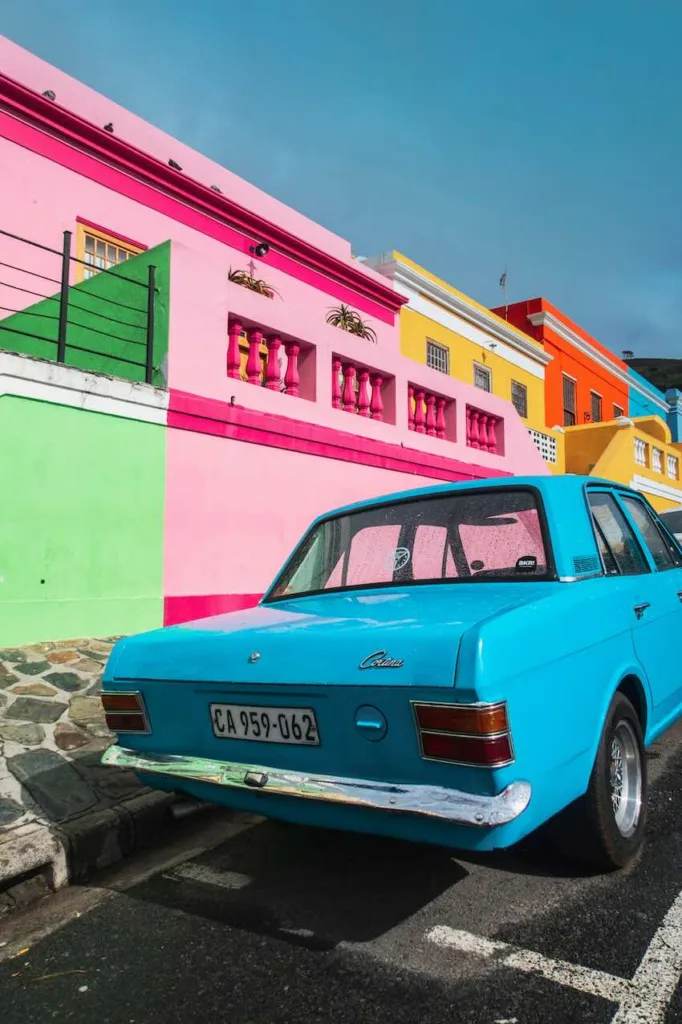
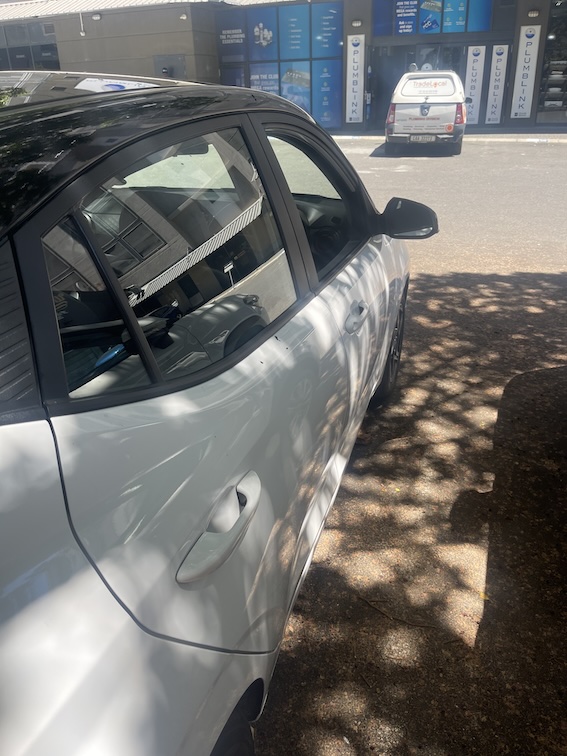
Cape Town is definitely a driving city. Almost everyone drives here, and lots of travellers decide to rent a car because it’s generally considered the best way to get around.
But after living (and driving) here for a few years now, there are DEFINITELY some things that you need to know before you get behind the wheel.
Driving in Cape Town isn’t like driving on another planet or anything like that, but things are done a little differently here. And hiring a car is the best way of getting around the city and the wider Western Cape, whether you’re here for a few days or a few months.
So strap in, and let’s get to it!
1. Is driving in Cape Town safe?
Overview
Driving in Cape Town is mostly safe, but there are definitely some things to be aware of.
According to official statistics, driving in South Africa is roughly 8.5 times more dangerous than in the UK and twice as dangerous as the US.
Honestly, sometimes I do hate how aggressive drivers can be in the summer. Then again, I’m an uber-polite British driver.
The roads in Cape Town are well maintained compared to the rest of the country. Drivers here also tend to be more sensible. In fact, several friends have remarked how chaotic they find Johannesburg drivers to be.
Driving style
Drivers here are pretty impatient. They’ll often pull out in front of you and aren’t great about giving way. People like to change lanes a lot and sometimes they don’t give much warning – if any.
It can be irritating at first but you get used to it. It might not even be that different to where you’re from!
Taxis & drunk drivers
The worst offenders in Cape Town, though, are the taxi drivers. Taxis in Cape Town aren’t cabs, but minibuses that drive like absolute maniacs. They don’t indicate, or give way, or use any common sense.
Make sure you give these guys a wide berth. Thankfully, they’re easy to spot!
You should also be aware that there is a drunk driving problem in South Africa, and so you should be extra cautious when driving at night.
2. It IS worth hiring a car in Cape Town
I don’t say any of the above to put you off! Most people I know drive and have zero issues. In fact, I do recommend hiring a car! You just need to know what kind of roads you’ll be dealing with so that you can make smart decisions.
I’ve driven in Cape Town and had no problems. Aside from the more aggressive style of driving, it was super easy and felt normal. Probably the worst thing about it was having to parallel park!
3. Why is Cape Town a driving city?
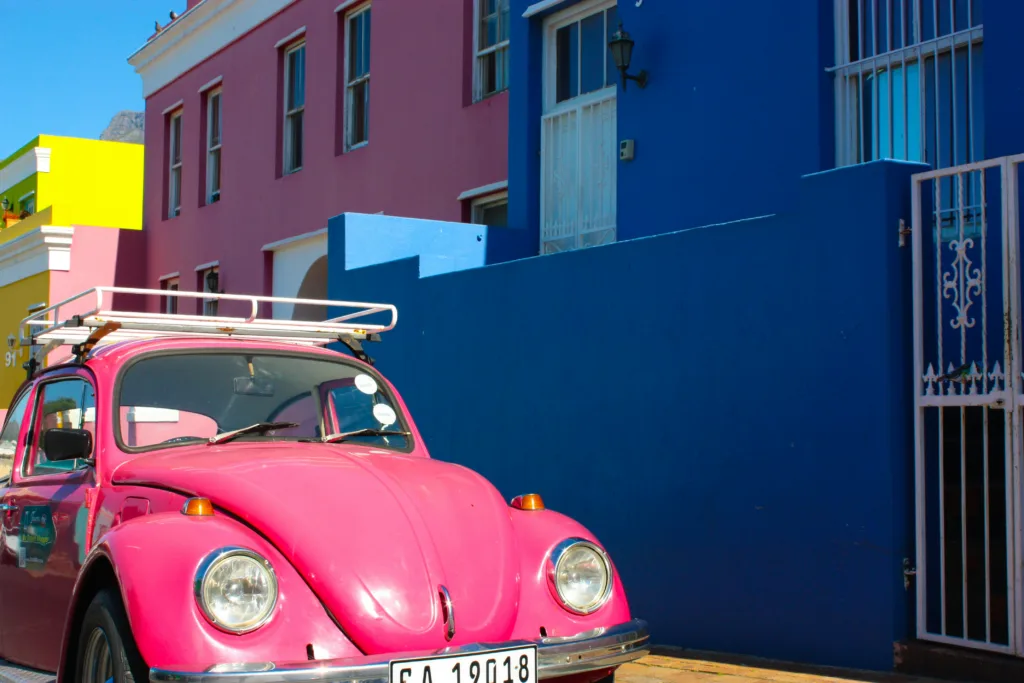
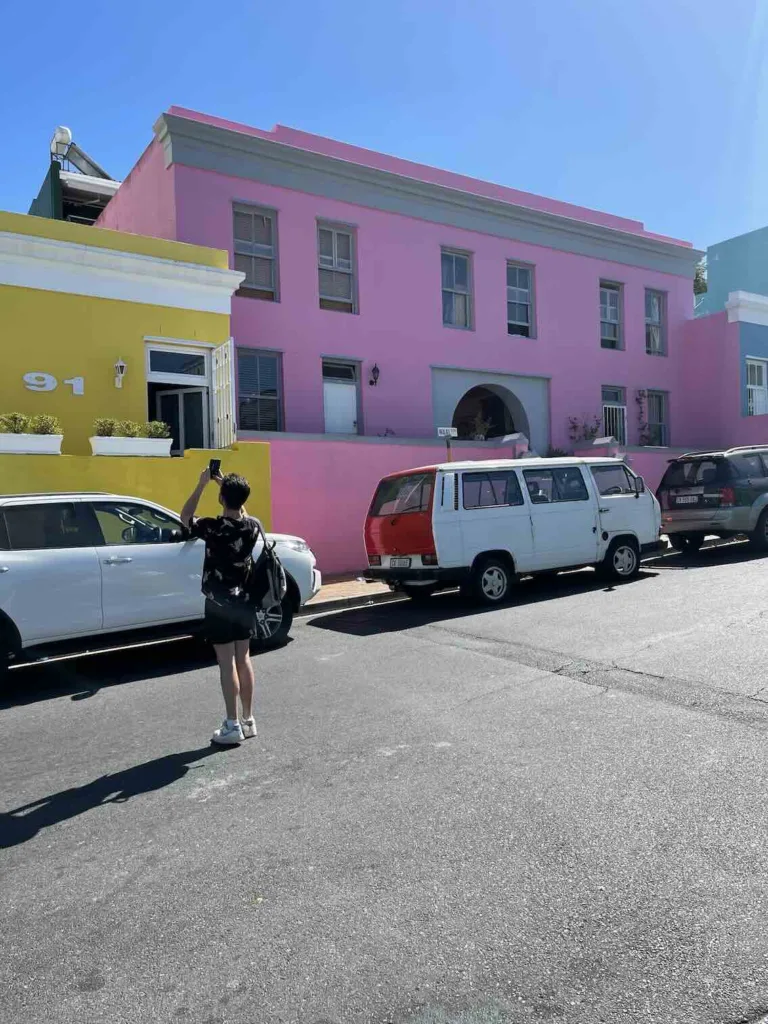
A big reason so many Capentonians drive is because there isn’t a strong public transport system here. The MyCiti bus is cheap, reliable, and comfortable, but it mostly only serves the central areas – you can check the route map here.
Cape Town also doesn’t have horrendous congestion charges or outrageous parking prices like lots of other cities do. There’s no subway, trams, or trains, and while certain neighbourhoods are very walkable, you need a car for longer distances.
4. Do I need an international driver’s licence for South Africa?

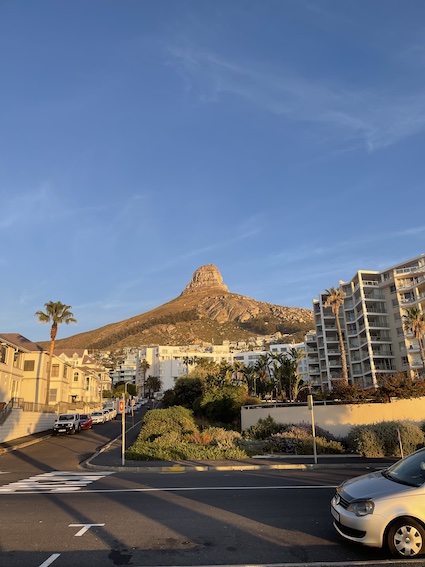
Nope, not if you have a full driver’s licence printed in English from your country of residence. You will need to carry this with you whenever you drive, as you can be arrested for failing to present your licence if you get pulled over.
If you’re coming to South Africa on a student, critical skills, or volunteer visa that lasts several years, you can use your home licence for up to a year before you need to get a local one.
However, if your licence isn’t in English, then you will need to apply for an International Driving Permit before you can get behind the wheel in Cape Town.
5. What are the speed limits like in South Africa?
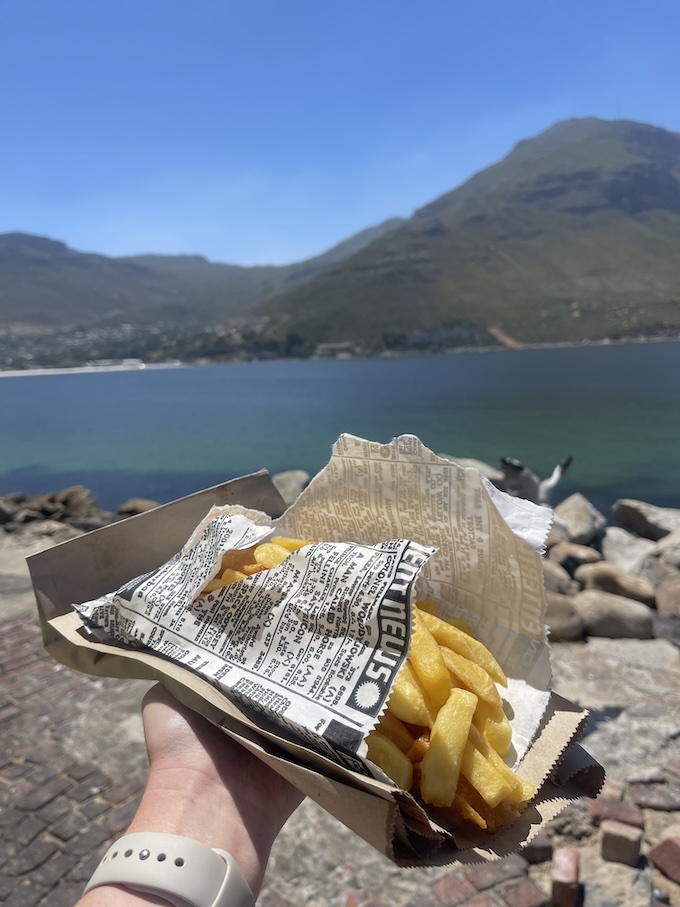
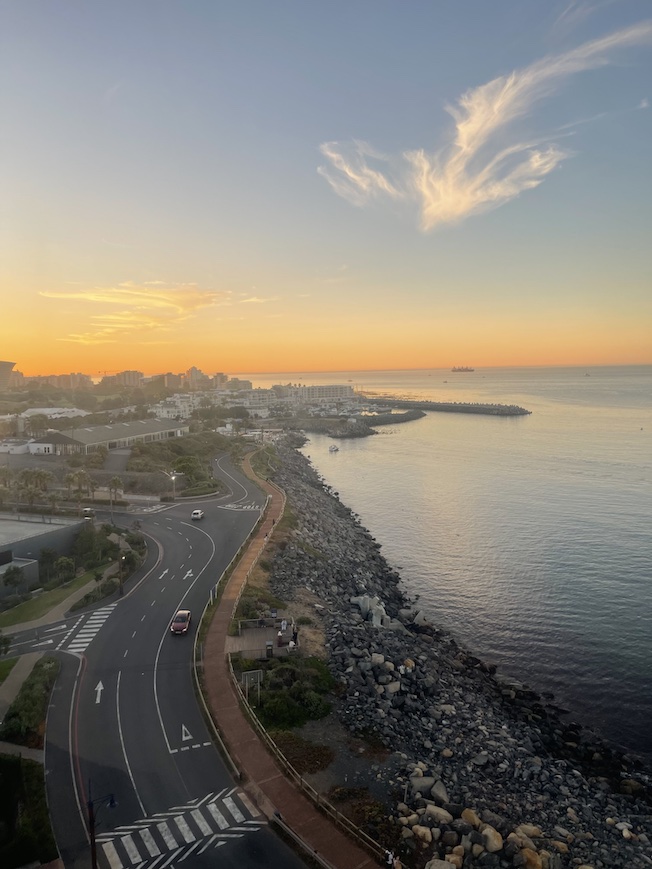
Speed limits in South Africa are always written in kilometres. In the city, the speed limit is usually set at 30-50 km/h (18.6-31 mph), depending on the area and type of road. Meanwhile, on the highway they range between 80 – 120 kilometres per hour (50-74.5 mph).
6. What side of the road do they drive on in South Africa?
The left. So if you’re visiting from the UK, Australia or New Zealand, you’ll feel right at home.
Also, just a quick note for Americans looking to rent a car in Cape Town: most of them are manual here!
7. Can you turn left at a red light in South Africa?
No, you can’t. The only time you can do this is when there’s a green arrow signal to specifically indicate you can go. Otherwise, you’ll have to wait.
8. Where is the best place to rent a car in Cape Town?


I recommend using Discover Cars to find a rental car in Cape Town. It’s a booking site that allows you to compare the top rental agencies so you can find the best price and choose a reputable provider (which is super important when renting a car).
I have used them and had a great experience. I was able to pick up my car in De Waterkant and the whole process was super easy. Plus, we actually got a free upgrade on our vehicle which was a huge bonus!
Better still, I only had to pay a small deposit in advance and had free cancellation up until a few days before. Then, I just paid the rest when I went to collect the day.
We opted for full coverage insurance, too, which was as easy as just ticking a box. It cost about R125 per day and was definitely worth it as it covered us under all eventualities, from major crashes to locking the keys inside the car – although thankfully, none of this happened!
Click here to check out prices and find a rental car in Cape Town
8. What is the price of petrol in Cape Town?
Like anywhere in the world, the petrol prices do fluctuate in Cape Town but it usually hovers between R20 – R25 per litre.
The price of petrol is standardised in South Africa, so one fuel station isn’t going to be any cheaper than another. Just get fuel wherever is convenient, but do be mindful that petrol stations often have to close during load shedding.
9. Remember to tip the petrol attendants
In South Africa, petrol stations have fuel attendants who will fill your car up for you. You can also ask them to clean your windscreen and check your tires if necessary. I always make it clear whether I want this service or not, as sometimes the attendants will go ahead and start doing it anyway.
It’s customary to tip a petrol attendant a few rand for filling up your car, and a little more if they perform another service on top of that. I would say R10 is fine for just filling up, and R30+ if they check your tyres and clean your windscreen.
10. Don’t drink and drive


Lots of Capetonians drink and drive. Even people who I would consider pretty sensible often get behind the wheel after a few glasses of wine. So they’re not smashed, exactly, but are definitely over the limit.
If you get caught drink driving in Cape Town, you will be arrested and probably fined. Cops do pull people over pretty regularly, especially when there are sports games or concerts on. You really don’t want to end up in this situation, so don’t drink and drive. Just take an Uber instead!
11. Keep your license with you at all times
Under South African law, you always have to carry your license with you when driving. So if you’re caught without it, this can mean big trouble – potentially even arrest!
I usually just leave mine in the glove compartment. To be honest, pull overs aren’t that common in central Cape Town, but they do happen.
However, they seem to be constant across the wider Western Cape, so if you’re going on a road trip make extra, extra sure that you’ve got your license so that you don’t end up in some cell in the middle of nowhere (or, more likely, being forced to pay an extortionate fine).
12. Avoid taxis
I mentioned this earlier, but it’s worth reiterating.
Taxis are white shuttle vans that drive super aggressively and have absolutely no regard for road rules. You should never expect a taxi to give way to you and if you’re driving close to one, always be prepared for them to cut you off or change lanes with literally no warning.
Give them a wide berth and just accept that they’re going to do whatever they want to do, with no thought to any other driver on the road.
13. Don’t use your phone while driving
You shouldn’t use your phone while driving anywhere, of course. However, given that there’s often a lot of traffic and many erratic drivers in Cape Town, this is especially true in the Mother City.
You need to keep your eyes on the road at all times, so leave your phone alone!
14. Learn the local road terms
It’s helpful to become au fait with South African road slang before you arrive. There are a couple of key terms that you should know:
- Robots = traffic lights. Don’t ask me why.
- Circle = roundabout
- Taxi = much-hated white shuttle van that drives erratically and aggressively
15. Always wear a seatbelt
This one is just common sense, but if you get pulled over and are not wearing a seatbelt, you can get in a lot of trouble. If you’re a passenger, both you and the driver can get into trouble, particular if you get into an accident. Strap in!
16. No parking on yellow lines or facing oncoming traffic
A yellow line in Cape Town means that you can’t park here at any time. You’re also not allowed to park facing oncoming traffic, either, even on two-way streets. That was a rule I’d never heard of before, so don’t be caught out by it.
You’ll almost definitely get fined if you do either of these things because traffic wardens are everywhere!
17. Be prepared for the car guards
Car guards are usually homeless men who watch your car for you while you’re parked, in return for a small amount of money when you come back to your car. Don’t give them money when you first park up!
It’s a good idea to carry some change to give the car guards, especially if you’re parking somewhere busy like Clifton Beach. R5 to R10 will suffice.
However… Car guards are not employed by the City of Cape Town and you do not have to give them money. They don’t have any power to fine you and you do not owe them anything.
(I stress this point because some car guards tried to intimidate me and a friend once. However, they were the exception, not the rule).
Car guards can be helpful and they are often good at regulating the traffic within car parks. They’re also usually pretty friendly.
However, do bear in mind that they will occasionally give you dodgy advice, so with your gut. If they’re telling you to park along a yellow line or across someone’s driveway, you don’t have to listen to them.
18. Know the difference between car guards and parking attendants
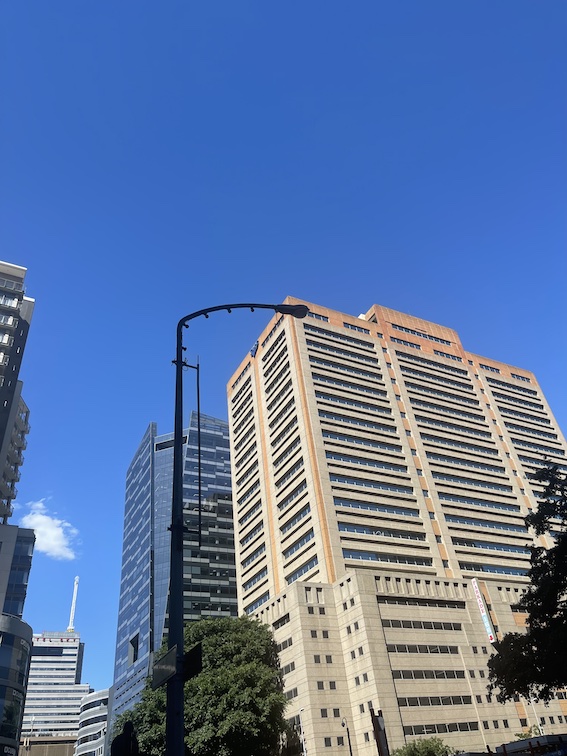

In some areas, such as the CBD and Main Road in Sea Point, there are parking attendants who you have to pay to park. These guys aren’t car guards, they’re legit, and paying is not optional.
The parking attendants will have card machines with them and sometimes have walkie talkies too. They will be wearing a high vis jacket and should also be wearing an ID. You need to tell them how long you want to park for and then pay with a card.
Don’t worry about them not being around when you park. They are always there and will come up to you as soon as you exit your car. They don’t miss a trick! And if you need to come back and add more time to your parking ticket, it will be easy to find them.
19. Drive defensively
Drivers in Cape Town can be impatient and don’t like to wait for others, so drive defensively. This means being aware of your surroundings, anticipating potential hazards (like taxis!), and adopting a cautious approach. If you drive like this, you should be absolutely fine.
20. Take care in the rain
This makes me smile a little. Capetonians really don’t know how to drive in the rain. They all freak out, because the city doesn’t get very much rain.
I find it really sweet how my friends always earnestly tell me to be careful when driving in the rain, because I’m from the UK. It’s an everyday occurrence here.
Anyway, I’d say it’s wise to reduce your speed, put your headlights on, and be extra careful in the rain anyway, but this is definitely true in Cape Town. Take extra care and expect other drivers to be a little more erratic than usual.
21. Don’t leave anything in your car
And I mean anything!
Unfortunately, car break ins are pretty common in Cape Town which is why you should never leave anything in your car. Don’t make your car attractive to thieves!
You’d be surprised at what people steal. My housemate had a water filter stolen from her car, and when it’s cold people will even break in to steal jumpers or jackets.
If you do want to keep a few spare warm clothes in your car for those chilly evenings, lock them in the boot, out of sight.
And of course, always lock your car. The same housemate forgot once and in the morning she found a strange man asleep in her car!
22. Be careful with phones
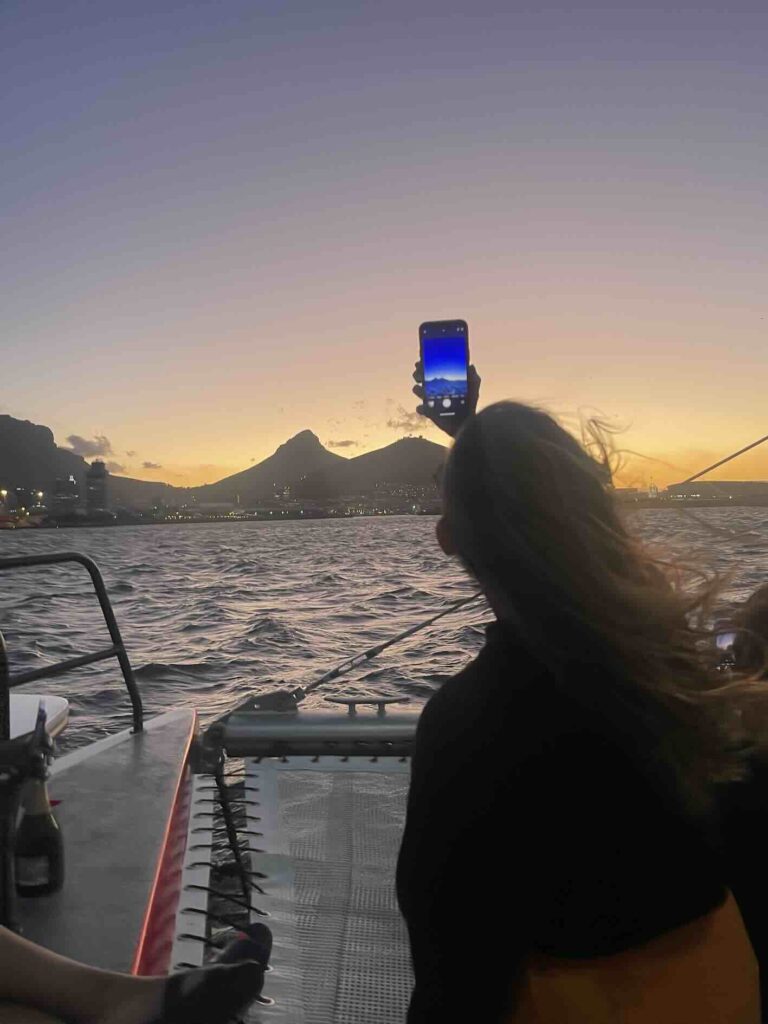

Cape Town enjoys some amazing weather and so you might want to drive with the windows down. Passengers should not use their phones when the window is down, though, because that’s how snatch-and-grab situations happen.
I’ve had so many Uber drivers warn me about this, so do be careful with your valuables even when you’re inside the car.
23. Get full coverage insurance
If you’re renting a car in Cape Town then it’s best to get full coverage insurance. Third party insurance is included with the rental price but full coverage insurance protects you in case you damage the car, lock your keys out, or the car is broken into. I always opt for this as it gives me peace of mind.
24. Beware of speed cameras – they’re everywhere!
Speed cameras are everywhere in Cape Town, and their locations are not always clearly disclosed. Annoying, right?
There are also lots of distance-over-speed cameras along the highway. It’s best to just stick to the speed limit at all times to avoid a fine. Most Capetonians just don’t pay theirs, but when you’re renting a car you can’t really get away with that…
25. There’s a first-come, first-go rule
Okay, so this is twofold.
First off, there are a lot of stop signs in Cape Town. There’s no giving way. Rather, whoever is there first has the right of way.
The same system is in place at roundabouts (or circles). I have to ignore all of my instincts to give way to the right, as I would in the UK. It’s first-come, first-served. To be honest, I’m usually reminded of this by other drivers honking behind me.
26. Rush hour
Cape Town’s rush hour is from about 7 am until 9:30 am, and 4 pm until 7 pm. The traffic in and out of the city can be a nightmare at these times and turn a 20-minute journey into an hour!
It also gets pretty hectic in the centre of town, too. It’s not as bad for a short journey but it’s nice to avoid it if you can!
27. Allow people to pass you in the countryside
When you’re driving on main roads outside of the city, there’s usually a continuous hard shoulder. This is marked out by a yellow line.
If someone behind you clearly wants to overtake, then it’s customary to pull over and drive in the hard shoulder to let them pass. And if you overtake someone else, make sure to put your hazard lights on briefly to thank them!
28. Make the most of Cape Town’s beautiful roads!
Last but not least, don’t miss the chance to enjoy some of Cape Town’s super scenic drives.
I love driving along Victoria Road in Camps Bay and Hout Bay, which will then take you to the crown jewel: Chapman’s Peak Scenic Drive. It’s beyond stunning. Boyes Drive in Muizenberg is also famous for its beauty, as it offers fantastic views of the False Bay Coast.
For more need-to-know info about Cape Town, check out these guides:
